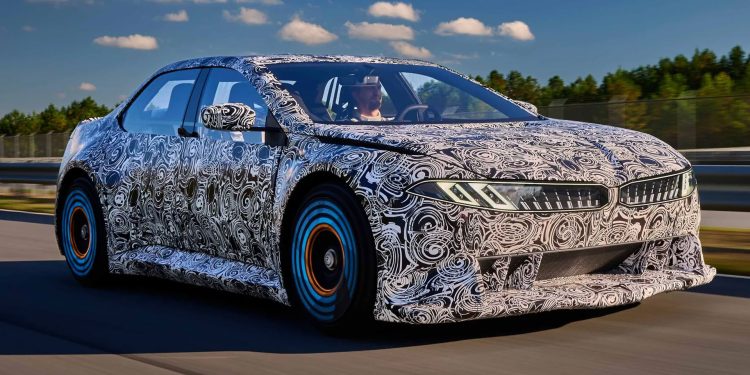Next BMW M3 will have an ICE version too
Words by NZ Autocar magazine
BMW has confirmed that its M3 will live on with combustion power, albeit in an entirely new form. While the spotlight may be on the upcoming electric M3, which is tipped to deliver over 515kW thanks to an 800-volt architecture and four motors, petrol purists have reason to stay tuned. A newly developed six-cylinder engine will power an ICE version of the next-gen M3.
Speaking with Top Gear UK, BMW Neue Klasse project lead Dr. Mike Reichelt revealed that the petrol-powered M3 won’t simply be a carryover of the current S58 unit. Instead, it’ll feature a “new type” of straight-six, distinct from the current 3.0-litre twin-turbo configuration found in today’s G80 M3.
Read more 2025 BMW M5 Review
“We’re also going to offer [the M3] with a new type of six-cylinder engine,” said Reichelt. “We know some long-time M fans may not be ready to go full EV just yet, so we want to give them something special.”
Details on the new engine remain under wraps, but it’s expected to push well beyond the current model’s 405kW. A hybridised evolution of the S58 seems likely, potentially bridging the performance gap between internal combustion and BMW M’s electric future. What’s clear is that downsizing isn’t on the table—BMW has dismissed the idea of a four-cylinder M3 as “really difficult.”
Electric or petrol, dynamics remain front and centre for the M division. The upcoming M3 will showcase BMW’s new “Heart of Joy” performance control system; a centralised brain previewed in the Vision Neue Klasse concept. The system unifies the car’s responses to steering, braking, energy recovery, and drivetrain inputs, processing data up to ten times faster than current systems. BMW says the result is razor-sharp precision, especially through the bends.
“It’s not just about 0–100 anymore,” Reichelt said. “It’s about creating a car that feels right through every corner, every input. That’s what this new system delivers.”
The Neue Klasse 3 Series is set to debut later this year, with the EV variant arriving in 2026. The petrol-powered M3 is expected to follow in late 2026 or early 2027.





